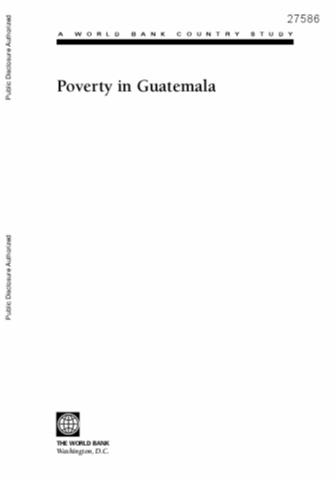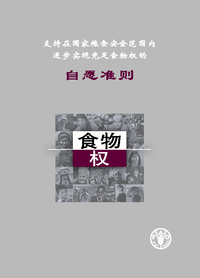The critical triangle relationship between the diversity of wetlands utilization, the enhancement of agricultural productivity, and food security in Uganda
Comparative Study on Practices and Lessons in Land Use Planning and Land Allocation in Cambodia, Lao PDR, Thailand and Viet Nam
The overall objectives of the study were to collect and analyse LUP methodologies in the 4 countries and to assess the experiences and lessons learned during implementation. The comparative assessment would include land use planning approaches at various levels, ranging from participatory village level LUP activities to the elaboration of land use master plans at provincial or even regional level. Finally, recommendations were to be formulated for the countries as well as for the sub-region as a whole.
Study on Land Allocation to Individual Households in Rural Areas of Lao PDR
The legal framework for land use planning and land allocation (LUP/LA) in Lao PDR has been analysed based on the relevant laws (Land Law, Forest Law, Agricultural Law etc.). A national LUP/LA program under the overall responsibility of the Ministry of Agriculture and Forestry has been created in 1996. Until 2003, district agricultural and forestry staff have conducted LUP/LA activities in a total of 5400 villages in all provinces of Lao PDR. It is estimated that approximately 300.000 Temporary Land Use Certificates have been issued as a result of LUP/LA.
Land degradation, drought and food security in a less-favored area in the Ethiopian highlands: a bioeconomic model with market imperfections
Improved fallows in Kenya
This case study explores the development, dissemination, adoption, and impact of improved tree fallows in rural western Kenya. The processes of technology development and dissemination throughout the region are described and analyzed. To analyze adoption and impact, the paper applies a variety of different data collection methods as well as samples from both pilot areas where researchers maintained a significant presence and non-pilot areas where farmers learned of the technologies through other channels.
Poverty in Guatemala
Poverty in Guatemala is high and deep. In 2000, over half of all Guatemalans lived in poverty. About 16 percent lived in extreme poverty. Available evidence suggests that poverty in Guatemala is higher than in other Central American countries. Although poverty has fallen over the past decade, its trend recently declined due to a series of economic shocks during 2001 and 2002. The drop of poverty incidence since 1990 is slightly slower than what would have been predicted given Guatemala's growth rates, suggesting that growth has not been particularly pro-poor.
Land Matters in Displacement: the Importance of Land Rights in Acholiland and what threatens them
Comprises executive summary; introduction; land and land rights in Acholi; security, access to land and food security; interventions; return and the Land Act; conclusions and recommendations. CSOPNU is a loose coalition advocating for a just and lasting peace in Northern Uganda, based on analyses of underlying causes of the conflict. Research sought to provide an analysis of how issues related to land affect people in the conflict areas of Acholi sub-region, with a focus on return as a durable solution to internal displacement.
Re-encountering resistance: Plantation activism and smallholder production in Thailand and Sarawak, Malaysia
The emergence of social and environmental movements against plantation forestry in Southeast Asia positions rural development against local displacement and environmental degradation. Multi-scaled NGO networks have been active in promoting the notion that rural people in Southeast Asia uniformly oppose plantation development. There are potential pitfalls in this heightened attention to resistance however, as it has often lapsed into essentialist notions of timeless indigenous agricultural practices, and unproblematic local allegiances to common property and conservation.
自愿准则 支持在国家粮食安全范围内 逐步实现充足食物权的
The objective of the Voluntary Guidelines is to provide practical guidance to States in their implementation of the progressive realization of the right to adequate food in the context of national food security, in order to achieve the goals of the World Food Summit Plan of Action. They provide an additional instrument to combat hunger and poverty and to accelerate attainment of the Millennium Development Goals.
Land tenure systems and their impacts on food security and sustainable development in Africa
This report is the first in a series of research studies that the Economic Commission for Africa (ECA) will produce with a view to improving the understanding of the links between land tenure systems and sustainable development in Africa. In a continent where 80 percent of the population relies on agriculture for their livelihood, the formulation and implementation of appropriate land policies is a paramount factor in poverty reduction strategies. Research is therefore needed to help policymakers take learned decisions when addressing land tenure issues.
Flood Forests, Fish, and Fishing Villages - Tonle Sap Cambodia: Community Forest Management Trends in Cambodia
The study describes the experiences of Kompong Phluk, a Khmer community that has been attempting to protect its flood forests and fishing grounds for the past fifty years. The authors examine how the community, assisted by the FAO project, has developed a resource management organization, formulated rules and regulations, sought government approval, and designed a comprehensive resource management plan. The report also details some of the challenges and issues that they have faced in the process.









